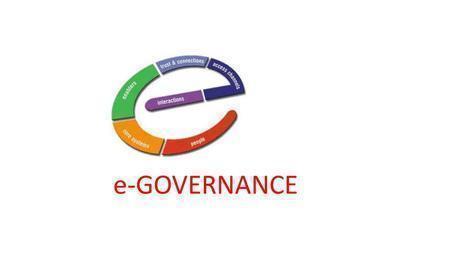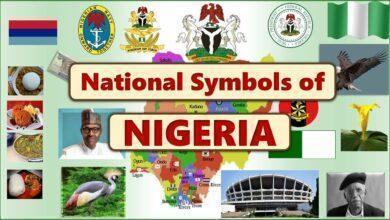
10 Challenges Of E-governance In Nigeria
Challenges Of E-governance In Nigeria- E-governance, the use of technology to improve government services and processes, has the potential to revolutionize the way government operates in Nigeria. However, as with any new technology, there are challenges that need to be addressed in order to ensure its success. From lack of infrastructure to limited digital skills, there are many obstacles that must be overcome if e-governance is to achieve its full potential in Nigeria. Challenges Of E-governance In Nigeria
This article will explore the challenges of e-governance in Nigeria and offer possible solutions to help overcome these hurdles. By addressing these challenges, Nigeria has the opportunity to lead the way in innovative and efficient government services, improving the lives of its citizens and driving economic growth.
👉 Relocate to Canada Today!
Live, Study and Work in Canada. No Payment is Required! Hurry Now click here to Apply >> Immigrate to CanadaRead Also: 10 Challenges Facing Jumia
Definition Of E-governance
E-governance, also known as electronic governance, is the use of technology to improve government processes and services. It involves using digital tools and platforms to enhance communication, information sharing, and decision-making within the government. The goal of e-governance is to create a more efficient, transparent, and accountable government that can better serve the needs of its citizens.
From online portals for accessing government services to digital platforms for tracking government spending, e-governance encompasses a wide range of technologies and tools. It can help streamline government processes, reduce bureaucracy, and improve the delivery of services to citizens. By leveraging technology, e-governance has the potential to transform the way government operates and improve the lives of citizens.
Whether you’re a government official looking to improve your processes or a citizen looking to access government services more easily, understanding the definition and benefits of e-governance is essential. By embracing e-governance, governments can improve their efficiency, accountability, and responsiveness, delivering better services and outcomes to their citizens.
Importance Of E-governance
1. Improved Service Delivery: E-governance can improve the speed and quality of government services, making them more accessible and convenient for citizens.
2. Increased Transparency: By utilizing technology, e-governance can help reduce corruption and increase transparency in government processes, which can help build trust between the government and citizens.
3. Enhanced Decision-Making: With access to more accurate and up-to-date information, e-governance can help improve the quality of decision-making, leading to more effective policies and programs.
Read Also: 10 Challenges Facing E-commerce In Africa
👉 Relocate to Canada Today!
Live, Study and Work in Canada. No Payment is Required! Hurry Now click here to Apply >> Immigrate to Canada4. Better Resource Management: E-governance can help improve the efficiency of resource allocation, reducing waste and ensuring that resources are used effectively.
5. Economic Growth: By improving the delivery of government services, reducing corruption, and enhancing transparency, e-governance has the potential to drive economic growth, creating jobs and improving the standard of living for citizens. Information Guide Nigeria
Overview of E-governance in Nigeria
E-governance, the use of technology to improve government services and processes, is an increasingly important aspect of government operations in Nigeria. The goal of e-governance is to make government more efficient, transparent, and accessible to citizens. From online portals for public services to digital systems for tracking government spending, e-governance is transforming the way government operates in Nigeria.
However, despite its potential benefits, e-governance in Nigeria is facing a number of challenges. From limited technical infrastructure to a lack of digital skills, there are many obstacles that must be overcome if e-governance is to reach its full potential. Despite these challenges, the government of Nigeria is actively working to implement e-governance solutions, with the goal of making the government more effective and accountable to citizens.
Overall, e-governance has the potential to revolutionize the way government operates in Nigeria, improving the lives of citizens and driving economic growth. By overcoming the challenges and fully embracing the potential of e-governance, Nigeria has the opportunity to lead the way in innovative and efficient government services.
10 Challenges of E-Governance in Nigeria
E-governance, the use of technology to improve government services and processes, has the potential to revolutionize the way government operates in Nigeria. However, there are challenges that need to be addressed in order to ensure its success. From lack of infrastructure to limited digital skills, these challenges must be overcome if e-governance is to achieve its full potential in Nigeria.Romantic Love Messages
1. Lack of Infrastructure:
One of the biggest challenges facing e-governance in Nigeria is a lack of adequate infrastructure, including reliable electricity and internet connectivity.
Possible Solution: Investing in infrastructure, such as expanding broadband access and improving the reliability of electricity, is crucial to the success of e-governance in Nigeria.
Read Also: 10 Challenges facing media in Nigeria
2. Limited Digital Skills:
Another challenge is the limited digital skills of citizens, government officials, and employees, which can hinder the effective implementation of e-governance initiatives.Good Morning Love Message
Possible Solution: Providing training and education on digital skills can help overcome this challenge and increase the effectiveness of e-governance in Nigeria.
3. Cybersecurity Concerns:
The threat of cybercrime is another challenge facing e-governance in Nigeria, as sensitive government information is vulnerable to cyber-attacks.
Possible Solution: Implementing strong cybersecurity measures and raising awareness about online safety can help mitigate the risk of cybercrime and ensure the security of sensitive government information.
4. Corruption and Mismanagement:
Corruption and mismanagement of government resources remain major challenges facing e-governance in Nigeria. It is our problem -Frank Lampard explains how he is dealing with Chelsea’s bloated squad
Possible Solution: Implementing transparency and accountability measures, such as electronic voting systems and financial management systems, can help reduce the risk of corruption and improve the management of government resources.
5. Resistance to Change:
Resistance to change and a lack of understanding of the benefits of e-governance can also pose a challenge in Nigeria. JAMB Portal
Possible Solution: Raising awareness and providing education on the benefits of e-governance can help overcome this challenge and increase the adoption and acceptance of e-governance initiatives.
6. Inadequate Data Management:
Poor data management systems can limit the effectiveness of e-governance initiatives in Nigeria.
Possible Solution: Investing in robust data management systems and providing training on data management practices can help improve the quality of data and increase the effectiveness of e-governance in Nigeria.
Read Also: 10 CHALLENGES FACING MUSLIM YOUTH IN NIGERIA
7. Inadequate Legal Framework:
An inadequate legal framework can limit the implementation of e-governance initiatives in Nigeria.
Possible Solution: Developing a comprehensive legal framework that clearly outlines the roles and responsibilities of government and citizens in e-governance can help overcome this challenge and support the effective implementation of e-governance initiatives.NYSC Portal
8. Limited Access to Technology:
Limited access to technology, particularly among rural populations, can limit the reach of e-governance initiatives in Nigeria. Duties of a Housekeeper
Possible Solution: Expanding access to technology, particularly in rural areas, and providing education on the use of technology can help increase the reach of e-governance initiatives in Nigeria.
9. Technical Challenges:
Technical challenges, such as outdated systems and hardware, can also limit the effectiveness of e-governance in Nigeria.
Possible Solution: Regularly updating systems and hardware and providing ongoing technical support can help overcome technical challenges and ensure the effective implementation of e-governance initiatives.
10. Lack of Political Will:
Finally, a lack of political will to implement e-governance initiatives can be a major challenge in Nigeria.
Possible Solution: Building political will and commitment to e-governance by raising awareness of its benefits, addressing stakeholder concerns, and involving all relevant parties in the decision-making process can help overcome this challenge and ensure the success of e-governance in Nigeria.
Read Also: 10 CHALLENGES FACING NIGERIAN POLICE FORCE
Conclusion
In conclusion, the challenges facing e-governance in Nigeria are numerous, but by addressing these challenges and implementing effective solutions, Nigeria can harness the power of technology to improve government services and processes for its citizens. The importance of e-governance in Nigeria cannot be overstated, as it has the potential to increase efficiency, transparency, and accountability in government operations. With the right investments and commitment, e-governance has the potential to transform the way government operates in Nigeria for the better.
Check JAMB RESULT
Check and Confirm: How much is Dollar to Naira








